Many young people of color aren't getting the COVID booster. Biden aims to change that.
- Oops!Something went wrong.Please try again later.
- Oops!Something went wrong.Please try again later.
- Oops!Something went wrong.Please try again later.
WASHINGTON – Many young people of color are not getting the COVID-19 booster shot at the same rate as young white Americans. The Biden administration said it is determined to close that gap by tapping churches, community health centers and medical professionals in communities of color to get more people vaccinated and boosted.
“We need to do better and we all recognize that with equity in boosters,’’ said Dr. Anthony Fauci, director of the National Institute of Allergy and Infectious Diseases and chief medical adviser to President Joe Biden. “Equity remains an important part of any of our plans.”
The White House last week released its latest plan to address the COVID-19 pandemic, including efforts to tackle inequity concerns about access to vaccines, testing and oral antiviral pills. One key effort, officials said, will be to try to close the gap between rates of vaccinated white young adults and young adults of color who received boosters.
The percent of fully vaccinated people over 65 years old who received a booster was 68.8% for Black seniors, 67.6% for Hispanic seniors and 77% for white seniors by the end of January, according to the Centers for Disease Control and Prevention.
The gap widened by nearly 20% between white adults and Black adults 18 years old to 49 years old. About 49.5% of whites in that age group were fully vaccinated and boosted, compared with 30.4% of Blacks and 37.7% of Hispanics.
“That's the backbone of the protection that communities need against this pandemic," said Cameron Webb, a senior policy adviser for equity on the White House COVID-19 Response Team. “We have to replicate that kind of success in terms of equity in the booster effort and in the pediatric vaccination effort.”
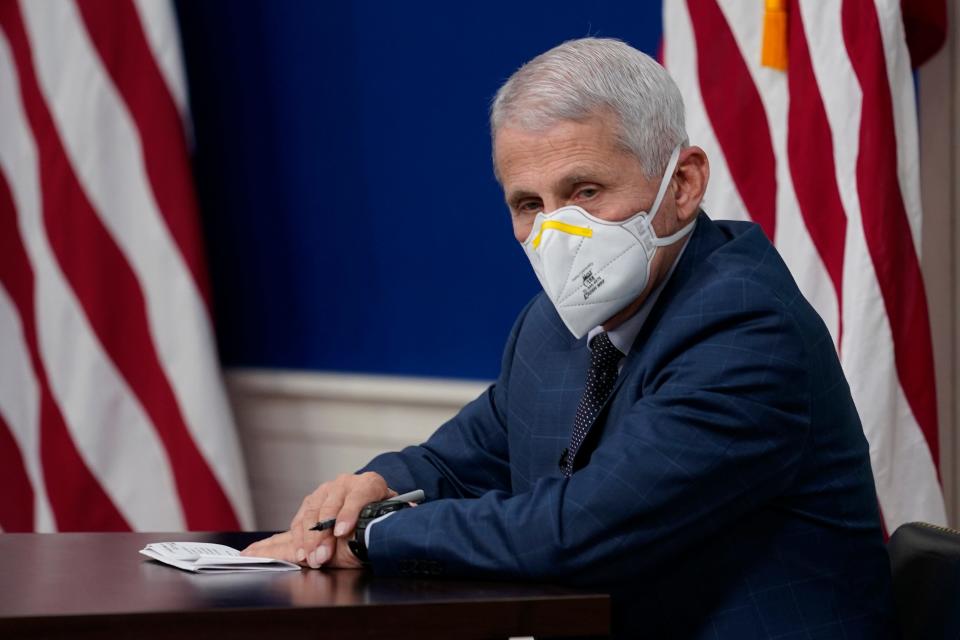
Young people of color need more access to booster shots, White House says
Webb pointed to factors in hesitancy among young people, including the lack of convenience and confidence, which includes concerns about effectiveness and safety, and complacency.
‘‘I think for younger individuals having seen so much COVID around their peers and in their community, that notion of the risk of hospitalization and of death in the younger age range, it's not rising to the same level,” Webb said.
With the recent omicron wave, many young people, particularly those in communities of color, saw others get COVID-19 and were infected themselves, Webb said.
“They're asking that question of, ‘Well, if I just got infected do I need a booster?'’’ he said. “And as Dr. Fauci will tell you, as I'll tell you, the answer is yes.”
Fauci said that while it hasn’t been easy to get vaccination rates up, there must be concerted efforts to increase the number of people of color getting boosters.
“We don't want the community… to think that when we talk about going in the right direction, that it's over,’’ he said. “We are getting back to normal. The president made that very clear in his State of the Union address. And we've been saying that, but we still need to be prepared if we do get a variance, to respond quickly and appropriately without shutting down the country, without shutting down the schools.”
Long before the pandemic, people of color experienced health disparities, including lack of access to quality care and health insurance, factors that made these communities more vulnerable to COVID-19, experts say. The pandemic has had a disproportionate impact on communities of color, which often suffer from higher rates of chronic diseases such as diabetes.
Despite the White House's ongoing outreach to communities of color, the vaccination rate for Black adults lags white adults, according to the Centers for Disease Control and Prevention. By March 4, 46.9% of Black adults had had a single dose of the vaccine, compared with nearly 53% of white adults. Nearly 41% of Black adults were fully vaccinated, compared with nearly 49% of white adults.
White House officials said the administration will continue targeted efforts to distribute COVID-19 tests and masks to communities of color.
In addition, Webb said 15% of oral antiviral pills will go to federally qualified health centers that disproportionately serve communities of color.
“We're going to continue to make sure that we're getting treatments to the communities that have been the hardest hit, that face the highest risk,’’ he said.
But experts said the administration still faces challenges in building trust, particularly in Black communities.
”It's still hard for a lot of Black people to grasp that there's something that could come out of the government that is good, that is not meant to harm them,’’ said Dr. Melissa Clarke, CEO of the BHE Group, a health literacy company focused on achieving health equity, and former assistant dean in the Howard University College of Medicine in Washington. “That's a huge leap.”
More: Health issues for blacks, Latinos and Native Americans may cause coronavirus to ravage communities
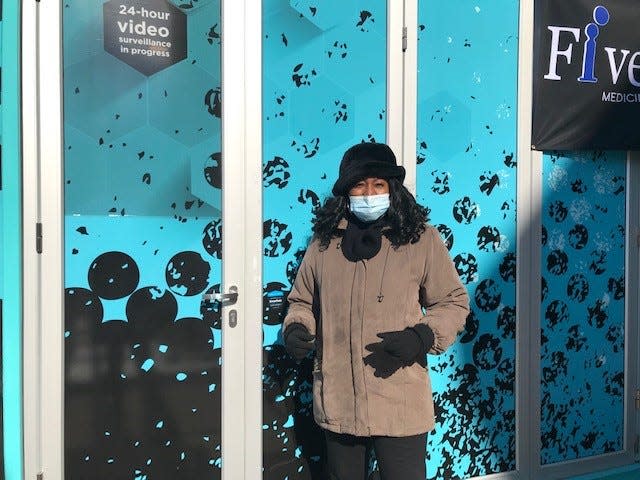
Clarke said the lack of trust in the government is made worse by a flood of misinformation on social media. She praised the administration's efforts to counter that, including training barbers and hairstylists to share information and even set up vaccine sites in their shops.
“It's, unfortunately, going to take more of that out-of-the-box thinking to reach younger Black people in places where they'll get the message,’’ Clarke said.
And while turning to churches is good for a certain demographic, Clarke said officials will have to adopt another approach for young adults and even younger populations, including working with schools and organizations such as Boys and Girls Clubs.
Getting young children of color vaccinated will be White House's next goal
Webb said the administration is already thinking ahead, and will push to boost vaccinations among children under 5 years old, most of whom are of color, when that becomes an option.
“That's an important dynamic for us to keep track of and make sure that when those become approved by the FDA, when those become available, we're ready to run to get those to the communities who are really hungry for them,’’ he said.
Experts have raised concerns about the lack of racial data for vaccinations of children. They say children of color disproportionately suffer severe illness from COVID-19, but may lack access to the shot.
Without that data and others, officials may not know how to target resources, experts say.
Clarke said only about 70% of the data is broken down by race and ethnicity. She said the lack of data is a pervasive problem in efforts to close health equity gaps.
"How do you know how wide they are and where and how to target them if you're not uniformly collecting the data and then there's not a uniform standard?'' Clarke said.
More: Barbers, stylists help combat vaccine hesitancy in Maryland: 'They have a trust with us'
More: 'People are really suffering': Black and Latino communities help their own amid coronavirus crisis
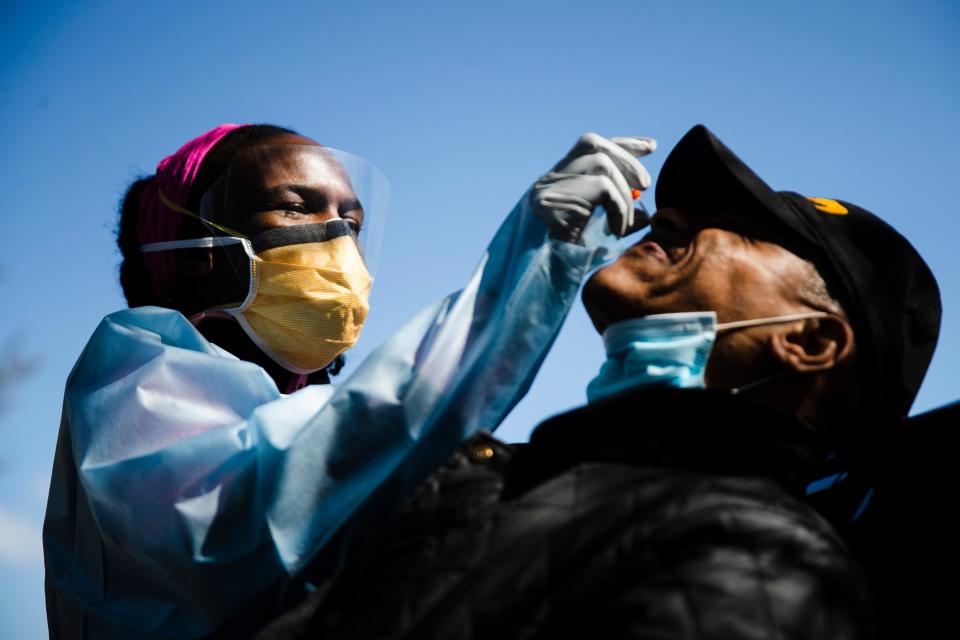
'Our communities may have not trust in us'
Rep. Robin Kelly, D-Ill., chair of the Congressional Black Caucus Health Braintrust, said she and other lawmakers from caucuses representing Black, Asian Pacific American and Hispanic constituents, have met with officials from the CDC and the administration to discuss health inequities, including collecting more racial data.
Kelly applauded the administration for spending billions to expand access to vaccines, particularly in rural communities and low-income areas, and targeting federal funds to community health centers in communities of color to administer vaccines.
“I think he’s doing a great job,’’ Kelly said of Biden.
Rep. Troy Carter, D-La., praised the administration for turning to faith-based organizations for help, but said it could do better, including by making sure those groups have enough resources.
“Many of our communities may not have trust in us, may not have trust in institutions, but they trust their places of worship,’’ he said, adding that faith leaders “have access to thousands of people every Sunday and that is a resource that we should continue to tap.”
White House officials said they will rely heavily on strategies that helped during the height of the pandemic: turning to medical providers of colors, grassroots groups and faith-based organizations.
“The churches raised their hand again, and they said, ‘Send us back. We'll get the job done,'’’ Webb said. “It’s recognizing that we don't just do that last year and say that the job is done. We say this becomes a model for how we engage authentically and effectively in communities of color.”
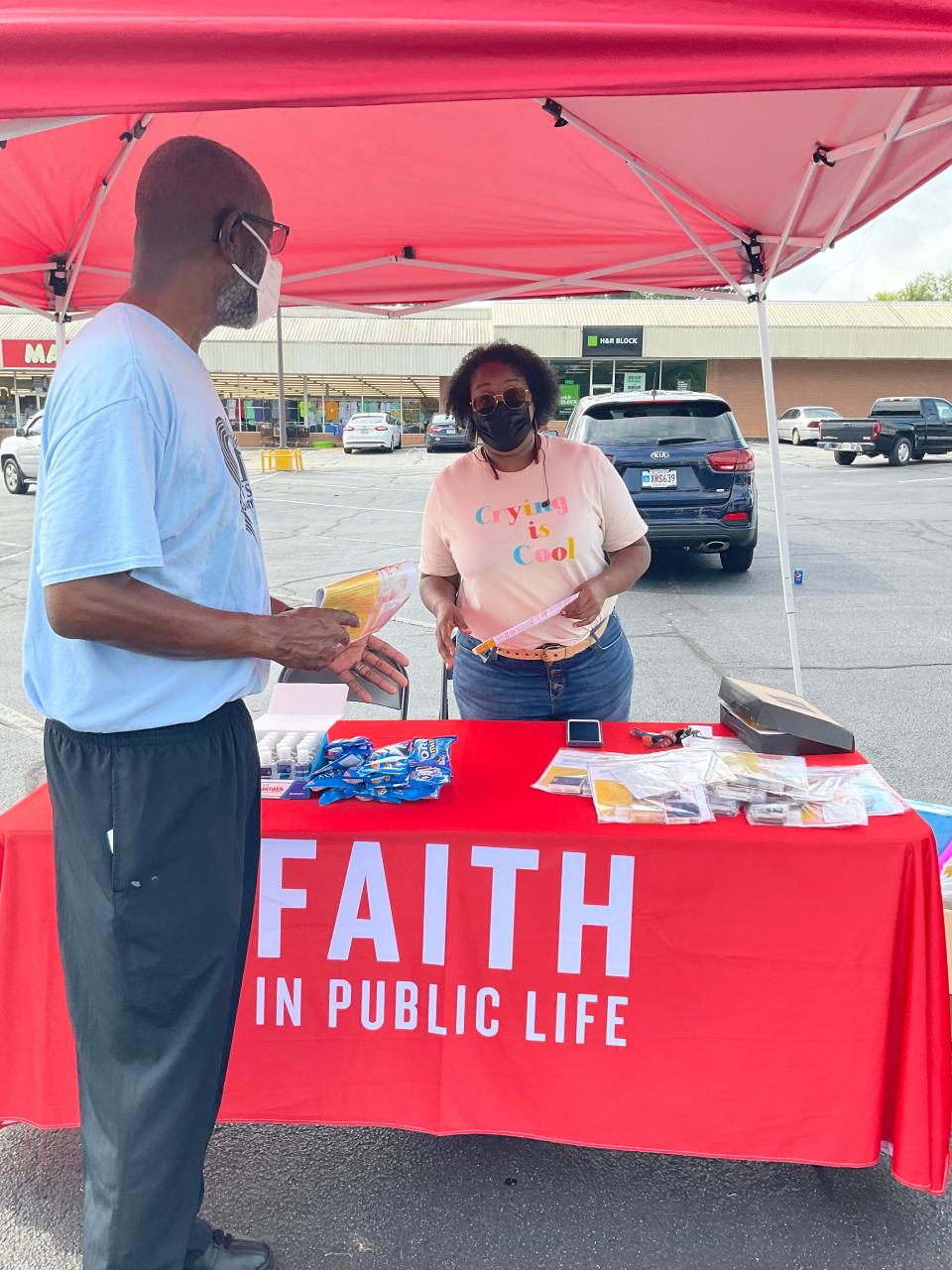
In Georgia, faith leader Shavonne Williams led efforts last year to partner with churches in rural counties to provide COVID-19 information to mostly Black congregations.
Williams' group launched “Keep the Faith, Get Vaccinated,” showing up at church services and at Bible study classes. It also set up health fairs and back-to-school events, and invited county health officials to come to provide vaccines.
“We’re actually meeting people where they’re at; everybody isn’t online," said Williams, a minister and the Georgia organizing ambassador for Faith in Public Life, a national coalition of faith leaders addressing social justice causes. "Everybody isn’t watching the Dr. Fauci interviews.”
Williams said faith leaders, who are considered trusted messengers, will be key to helping address equity COVID-19 concerns, but said the administration must provide more resources.
“Don't just lean on us and ask us to talk to the folks, but also arm the communities with information,’’ she said. “When you go down to some of our communities and there is no chain pharmacy, and there is no high-speed internet, but you tell them that they can order tests if they go online, you tell them that you're going to have these numbers they can call, but in order to get the numbers to call they have to have had access to social media…You have to make sure that we can close the gap for everything that creates the disparity in health care."
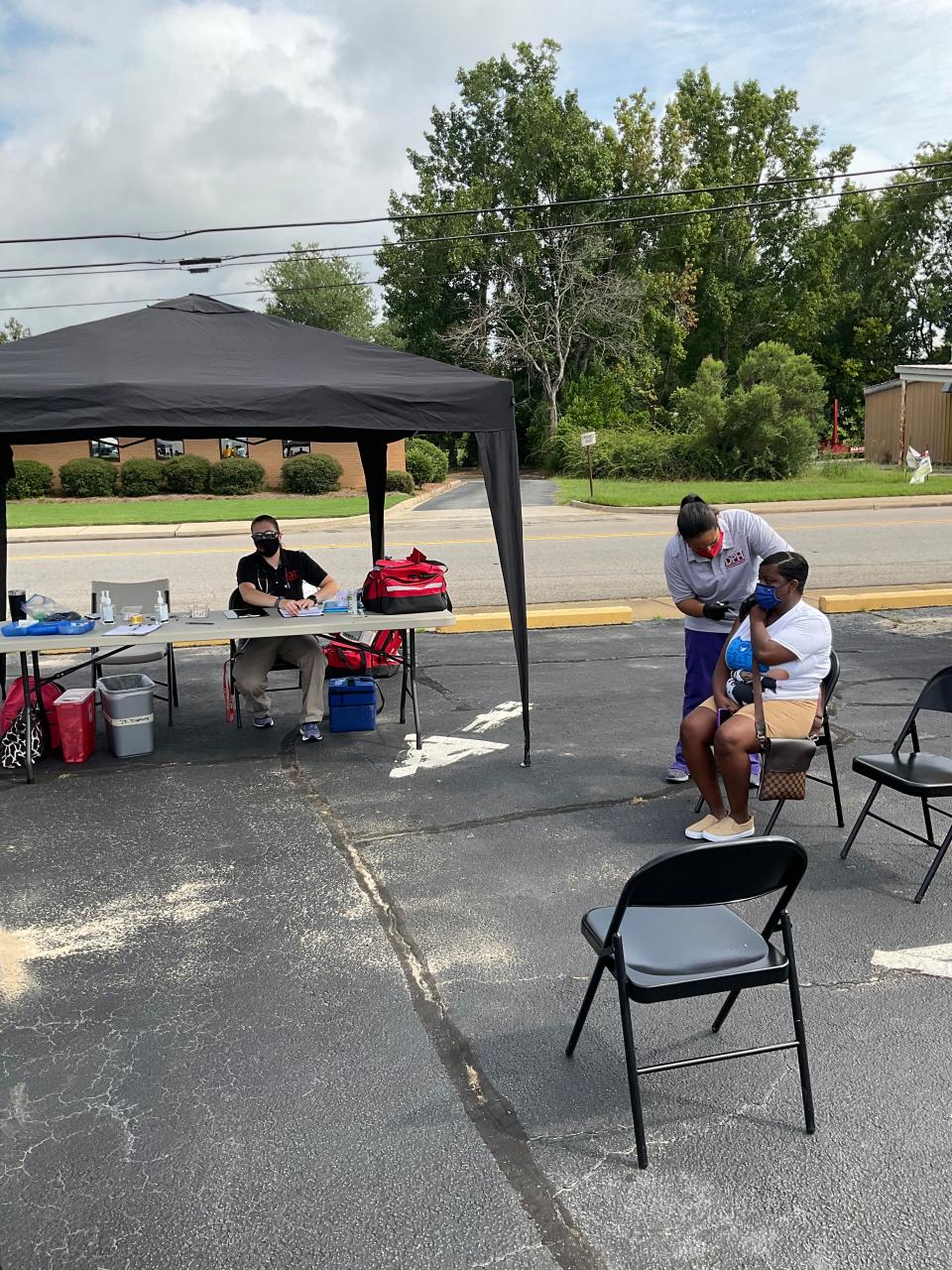
More: Experts worry a lack of data is obscuring which kids aren't getting the COVID-19 shot
More: U.S. raising world vaccine pledge to more than 1.1 billion doses
'We want to make sure that no one is left behind'
The administration, meanwhile, is also increasing efforts to provide vaccines to other countries, which Fauci said will be important to prevent the spread of another variant.
Fauci said the United States has distributed more vaccines than the rest of the world combined, noting the countryhas given 475 million doses to 112 low and middle-income countries. He said the United States has also given or pledged 1.2 billion doses.
“We are leading the pack when it comes to the developing world and making vaccines available to them,’’ Fauci said when asked by USA TODAY.
He said it’s also important in the effort to address inequities to track new variants, monitor hotspots and be better prepared to respond earlier and faster.
“We want to make sure that no one is left behind, if and when we get a new variant,” he said.
Contributing: Nada Hassanein
Follow Deborah Berry on Twitter: dberrygannett
This article originally appeared on USA TODAY: White House COVID plan aims to get more young people of color boosted

